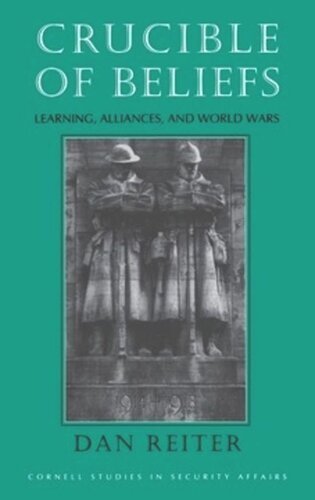

Most ebook files are in PDF format, so you can easily read them using various software such as Foxit Reader or directly on the Google Chrome browser.
Some ebook files are released by publishers in other formats such as .awz, .mobi, .epub, .fb2, etc. You may need to install specific software to read these formats on mobile/PC, such as Calibre.
Please read the tutorial at this link: https://ebookbell.com/faq
We offer FREE conversion to the popular formats you request; however, this may take some time. Therefore, right after payment, please email us, and we will try to provide the service as quickly as possible.
For some exceptional file formats or broken links (if any), please refrain from opening any disputes. Instead, email us first, and we will try to assist within a maximum of 6 hours.
EbookBell Team

0.0
0 reviewsHow do foreign policy-makers learn from history? When do states enter alliances? Beginning with these two questions, Dan Reiter uses recent work in social psychology and organization theory to build a formative-events model of learning in international politics. History does inform the decisions of policy-makers, he suggests, but it is history of a specific sort, based on firsthand experience in major events such as wars.
Reiter addresses a striking empirical puzzle: Why, in this century, have some small powers chosen to enter alliances when faced with international instability whereas others have stayed neutral? Specifically, why did Belgium, the Netherlands, and Norway join NATO, while Sweden, Switzerland, and Ireland did not? Employing quantitative and case study methods, Reiter finds that peacetime decisions about alliance and neutrality stem from states' experiences during world wars.
Tested against balance-of-threat theory, the leading realist explanation of alliance behavior, Reiter's formative-events model of learning emerges as a far better predictor of states' decisions. Crucible of Beliefs' findings show that, contrary to balance-of-threat theory, state leaders ignore the level of international threat and focus instead on avoiding past mistakes and repeating past successes. A serious blow to realism, these findings demonstrate that to understand the dynamics of world politics, it is essential to know how leaders learn from history.